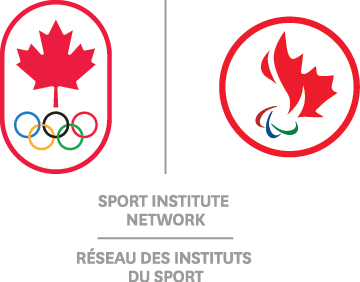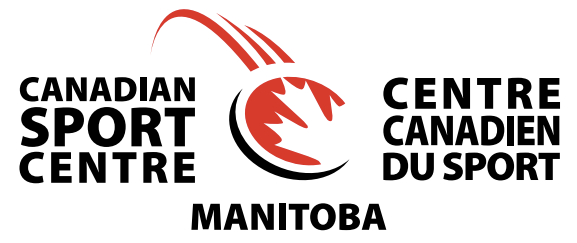Nutrition Tips to Boost Your Immune System
As a high performance athlete the stress of high intensity exercise, continuous travel and the competition schedule along with late nights and being in close quarters with teammates during the cold and flu season can take a toll on your body. Taking care of your immune system is vital. Luckily, there are many convenient, easily accessible foods that have excellent health benefits known to have a positive impact on the immune system. It is important to follow a nutrition plan emphasizing nutrients that support the immune system in order to meet the high demands of training and competition to reduce the risk of illness and injury. Consider the following nutritional recommendations to support your immune system to set you up for success!
When are athletes most susceptible?
A common perception is that exposure to cold wet weather can increase the likelihood of catching the common cold but the available evidence does not support this. Most people are more susceptible to colds in winter (which is possibly due to reduced vitamin D status at this time) but numerous studies on athletes indicate that they tend to be most susceptible to picking up infections at times close to competition. This usually follows a period of intensive training and added mental stress with the anxiety of wanting to perform well. The worry for athletes is that even a mild infection can impair their ability to perform at the highest level. Preventing infections is therefore very important to them and they can help themselves by ensuring good personal hygiene, good nutrition and minimizing other life stresses.
5 Nutrition Tips to Keep Your Immune System in High Performance
1. Eat antioxidant rich foods – Vitamins A, C, E and More!
Add some color to your meals and snacks by eating a variety of colorful fruits and vegetables such as oranges, berries, papaya, sweet potatoes, broccoli, spinach and beets. These foods are rich in antioxidants which help prevent cell damage that occurs in the body due to the production of free radicals from stress, aging or strenuous exercise. Physical activity at moderate to high intensities for a prolonged period of time results in a much higher increase in free radicals which has been known to contribute to muscle fatigue and a decrease in exercise performance.
While eating a diet rich in antioxidants can be beneficial for the immune system, it is not necessary to supplement with antioxidants, especially if you are an athlete training at high intensities. These supplements commonly provide much higher doses than the recommended dietary intake and taking these supplements in high doses can have negative effects on performance. Although a high performance athlete may have higher energy/calorie needs at times, supplementation is typically not necessary when a personalized balanced nutrition plan is followed. Therefore, whether you’re a shift worker who has to perform on demand, someone who exercises to maintain a healthy lifestyle or a high performance athlete, it is equally important to include a variety of fruits and vegetables rich in antioxidants.
Antioxidant boosting suggestions:
- Add spinach, kale or avocado to smoothies
- Blend veggies such as broccoli, spinach and carrots into pasta sauces or lasagna
- Make homemade fries in the oven using sweet potatoes instead of regular potatoes
- Have a fruit and yogurt parfait for breakfast or snack made with fresh berries
Did you know Tart Cherry Juice is jam packed with antioxidants to help decrease muscle damage, reduces soreness, inflammation and improve recovery and has naturally occurring melatonin to help with quality of sleep?! Just 60 ml per day to help you get on your way!
Note, that while some may need supplementation, food must be the first line of defense. There are still so many micronutrients we have not identified in food that support our health…which means we don’t have a supplement for what we have not yet discovered.
2. Eat foods rich in iron and zinc
Include lean protein foods that are rich in iron and zinc to support immune function. Iron is an essential nutrient, meaning that the body requires it from outside sources such as food or supplements. Iron is responsible for transporting oxygen throughout the body and low iron stores can result in symptoms of dizziness, fatigue and lowered immunity. Being involved in regular exercise increases the body’s need for iron as there is a higher amount of iron being used and an increased risk of iron loss (through sweat, blood loss from injury and menstruation, damage to red blood cells from running on hard surfaces). Zinc is also an important nutrient for the immune system and works in the body to help fight infection and battle against damaging free radicals.
Turkey, fish, lean ground beef and eggs are excellent sources of iron and zinc and are the most easily absorbed in the body. Iron and zinc can also be found in plant sources including nuts, seeds, nut butter, leafy green vegetables and legumes and iron fortified breakfast cereals. Although plant sources are rich in iron, they are not as easily absorbed and should be combined with plant Vitamin C foods (citrus fruits, fruit juice, strawberries, broccoli, tomatoes and peppers) to enhance absorption.
Recommendations to increase zinc and iron in the diet:
- Choose iron fortified cereals for breakfast and have a glass of orange juice on the side
- Eat lean red meat, turkey and fish daily
- Squeeze lemon or orange juice over vegetables
- Avoid drinking coffee and tea when eating plant based iron foods as these beverages can decrease the absorption of iron when eaten at the same time.
3. Eat foods rich in Vitamin D
Not only is Vitamin D important for maintaining strong, healthy bones, it may also help fight off infections, keep the immune system healthy and prevent frequent illness. Vitamin D is not naturally found in many foods, therefore foods such as milk, orange juice and some cereals are often fortified with Vitamin D. Vitamin D is also found in egg yolks, sundried mushrooms and fatty fishes like salmon and tuna. Most of us will need to supplement with vitamin D; especially because of training and competing indoors and living in colder climates. Before doing so, check with your sports dietitian or health practitioner for personalized recommendations.
Tips to increase food sources of Vitamin D:
- Make smoothies for breakfast and snacks with fortified dairy or non dairy milk
- Have a tuna salad sandwich or canned tuna and crackers for an easy recovery meal
- Add mushrooms to an egg omelet and have a glass of fortified orange juice for breakfast
- Include fish that is rich in Vitamin D as your protein source for lunch or supper 2-3 times a week
4. Include foods with probiotics & prebiotics – a dynamic duo!
Probiotics are good bacteria that keep the digestive and immune system healthy. Probiotics are often added to foods such as kefir, aged cheese, kimchi, sauerkraut, miso, tempeh and yogurt. Prebiotics are non-digestible carbohydrates that serve as food for probiotics, which will allow them to multiply and remain in the digestive system. Prebiotics are found in onions, garlic, leeks, chia seeds, bananas, asparagus, artichokes, soybeans, and honey.
- Overnight Oats made with oats, milk or alternative, chia seeds mixed together and topped off with yogurt and banana
- Steamed edamame with garlic
Note: supplementing with probiotics is not the same as eating foods high in probiotics. Most probiotic supplements contain bacteria that are symptom specific. We require a variety of bacteria for gut health not only just one or two types.
5. Focus on quality carbohydrates and protein before and after exercise
Delayed eating, inadequate carbohydrate intake and improper timing of protein intake can increase the risk of illness and infection. Aim to eat complex carbohydrates and quality protein before and after training to provide sufficient energy throughout the day and to promote a quick recovery. The following include examples of meal and snack ideas for before and after training that contain all of the immune boosting nutrients discussed above:
- Fruit smoothie (milk/alternative, yogurt, fruit, leafy greens, and nut butter)
- Lean meat sandwich, veggie sticks and hummus
- Oatmeal with milk/yogurt & berries, glass of orange juice
- Canned tuna and fruit salad
- Stir fry with vibrant colored veggies, tofu or lean meat or fish and rice or quinoa
- No Bake Energy Bites & Shake (contact sports dietitian if using a supplement)
Remember, there is no single super food (or supplement) that will keep you healthy, well and performing. What will work is including a balanced approach by including a variety of quality foods packed with immune enhancing nutrients along with good hygiene (hand-washing), quality sleep, and staying active.
For a summary of this information, download: CSCM Nutrition and Immune Health (pdf)
For more information, please contact:
Jorie Janzen | Director of Sport Dietetics
![]() 204.232.2234
204.232.2234
![]() jorie@cscm.ca
jorie@cscm.ca


